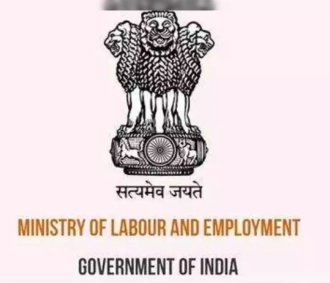Ministry of Labour and Employment
The Ministry of Labour and Employment is a ministry of the Government of India responsible for formulating and administering labour laws, welfare measures, and employment policies in India. The ministry aims to protect and safeguard the interests of workers, promote their welfare, and create a healthy work environment. It also focuses on skill development and employment generation to address the challenges of unemployment and underemployment in the country.
History
The Ministry of Labour and Employment has its roots in the Department of Labour, which was established in 1920 under the Government of India Act, 1919. Post-independence, the ministry has evolved to address the changing labour landscape and the growing needs of the Indian workforce. In 1966, the ministry was renamed as the Ministry of Labour and Employment to reflect its expanded scope and responsibilities.
Organisational Structure
The Ministry of Labour and Employment is headed by a Union Minister, who is assisted by a Minister of State. The administrative head of the ministry is the Secretary, who is supported by several Joint Secretaries, Directors, and other officials. The ministry has various departments and divisions, including the Labour Bureau, the Directorate General of Employment, and the Directorate General Factory Advice Service & Labour Institutes (DGFASLI).
Key Functions and Responsibilities
Labour Welfare One of the primary functions of the ministry is to ensure the welfare of workers across various sectors. It implements and monitors various labour laws, such as the Minimum Wages Act, 1948, the Payment of Wages Act, 1936, and the Maternity Benefit Act, 1961, among others. The ministry also oversees the functioning of the Employees’ State Insurance Corporation (ESIC) and the Employees’ Provident Fund Organisation (EPFO), which provide social security benefits to workers.
Industrial Relations
The ministry plays a crucial role in maintaining harmonious industrial relations between employers and employees. It intervenes in industrial disputes and promotes collective bargaining and worker participation in management. The Industrial Disputes Act, 1947, and the Trade Unions Act, 1926, are some of the key legislations administered by the ministry in this regard.
Employment Generation and Skill Development
The Ministry of Labour and Employment focuses on creating employment opportunities and enhancing the employability of the workforce through skill development initiatives. It implements schemes like the Pradhan Mantri Rojgar Protsahan Yojana (PMRPY) to incentivise employers for generating new employment. The ministry also collaborates with the Ministry of Skill Development and Entrepreneurship to provide vocational training and skill upgradation programs.
Labour Statistics and Research
The Labour Bureau, an attached office of the ministry, is responsible for collecting, compiling, and disseminating labour statistics. It conducts various surveys and studies on labour-related issues, such as employment, wages, and working conditions. The bureau’s data and research help in formulating evidence-based policies and interventions.
International Cooperation
The ministry actively engages with international organisations like the International Labour Organization (ILO) and participates in bilateral and multilateral forums to promote best practices in labour welfare and employment generation. It also works towards ensuring compliance with international labour standards and conventions.
Major Initiatives and Reforms
Labour Codes In 2020, the Parliament passed three labour codes – the Industrial Relations Code, the Occupational Safety, Health and Working Conditions Code, and the Social Security Code – to simplify and consolidate various labour laws. These codes aim to enhance ease of doing business, protect worker rights, and extend social security coverage to the unorganised sector.
National Career Service (NCS) Portal
The ministry has launched the National Career Service (NCS) portal, a digital platform that connects job seekers with employers. The portal provides career counselling, skill development courses, and job listings to help job seekers find suitable employment opportunities.
Shram Suvidha Portal
The Shram Suvidha Portal is a unified portal for labour law compliance and reporting. It enables employers to register their establishments, file returns, and obtain registrations and licenses online, thus reducing the compliance burden and promoting transparency.
Challenges and Way Forward
Despite various initiatives and reforms, the Ministry of Labour and Employment faces several challenges in ensuring the welfare of workers and generating adequate employment opportunities.
To address these challenges, the ministry must focus on extending labour protection and social security coverage to the informal sector, promoting formalisation of employment, and strengthening the implementation and enforcement of labour laws. It must also invest in skill development and vocational training to bridge the skill gap and enhance the employability of the workforce. Collaboration with industry, trade unions, and civil society organisations is crucial to create a conducive environment for job creation and labour welfare.


